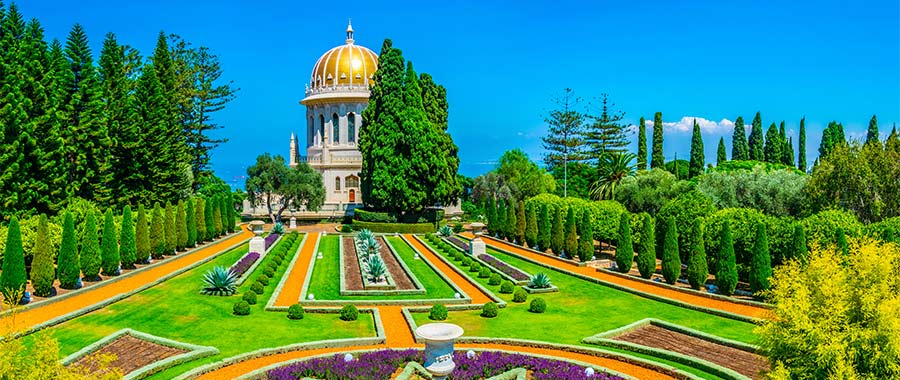At the profound intersection of spirituality and humanity lies the transformative proclamation made by the Báb, a pivotal figure in Bahá’í teachings. His declaration marked a watershed moment in religious history, heralding a new era characterized by the regeneration of human spiritual and social consciousness. This article delves into the salient themes of the Báb’s message, emphasizing its metaphysical significance, the attendant call for unity, and the revolutionary implications for all of humanity.
The essence of the Báb’s declaration can be encapsulated by the metaphor of a luminous beacon amidst the encroaching fog of societal discord. As the fog symbolizes ignorance and division, the light represents the enlightenment that arises from divine revelation. This duality encapsulates the transformational power of the Báb’s teachings, which illuminate pathways previously obscured by prejudice and misunderstanding. In recognizing this light, one finds not merely an individual pursuit of God, but an obligation to those inhabiting the same world.
The pivotal message of regeneration inherent in the Báb’s declaration invites humanity to reconsider its collective identity. Regeneration here is not merely a physical phenomenon, but a profound spiritual rebirth. The Báb posited that the divine purpose of this revelation was to awaken the latent potential within every individual, urging society to rise from the ashes of materialism and emergence into a new spiritual reality. Through introspection, believers are encouraged to embrace their roles as agents of change, enabling the birth of a community grounded in principles of love, justice, and unity.
In contemplating the notion of unity, one must recognize that the Báb’s call was not solely for some abstract ideal but for palpable action. He demanded that individuals transcend barriers created by race, nationality, and class. The metaphor of the human family plays a crucial role here; just as individual members of a family, irrespective of their differences, share an intrinsic bond, so too must humanity acknowledge its interconnectedness. The Báb’s precepts serve as a powerful reminder that divisiveness undermines the fabric of society, fostering conditions conducive to conflict rather than harmony.
As heralds of this revelation, the Báb and his followers, including Bahá’u’lláh, strove to create a paradigm shift. They articulated profound principles that are not only revolutionary but also resonate deeply within a contemporary framework grappling with societal inequities. Central to this discussion of regeneration is the Báb’s emphasis on the empowerment of women, a principle that seems prescient within today’s discourse on gender equality. Through his teachings, the Báb championed the idea that the advancement of women is integral to the advancement of civilization itself, thereby dismantling age-old patriarchal constructs that have historically restrained social progress.
The Báb’s writings are imbued with poetic elegance and clarity, expressing the divine essence in terms that resonate with human feeling. The rich imagery employed serves not only to convey profound truths but to inspire a visceral connection to the divine. One sees this in the Báb’s reference to the Qur’an and the teachings of previous prophets, which he regarded not as ends in themselves but as chapters in an ongoing divine narrative. This continuous narrative suggests that revelations are not static; rather, they build upon each other, culminating in the present teachings that aim to unify all people in their quest for truth. The metaphor of a tapestry is apt: each thread woven with purpose contributes to the whole, and only by recognizing the significance of each thread can one appreciate the art of the tapestry.
Furthermore, the idea of revelation as regeneration dovetails with the necessity of personal spiritual development. Just as the earth requires regular nourishment to sustain its fertility, so too must the spirit be cultivated through knowledge, reflection, and action. The Báb posited that education serves as the cornerstone of individual and collective regeneration. Empowering individuals through knowledge is tantamount to planting seeds in fertile soil, enabling humanity to reap the fruits of wisdom and understanding. It is not enough for individuals merely to acknowledge the Báb’s teachings; engagement and action are required to actualize this vision of a renewed society.
In summary, the Báb’s declaration represents a clarion call for the regeneration of humanity, underpinning the essential need for unity in diversity, empowerment of individuals, and ongoing spiritual development. His teachings resonate with the urgency of collective responsibility, urging individuals to partake in the divine plan by fostering relationships grounded in trust, empathy, and cooperation. As the world grapples with myriad challenges—social, economic, and environmental—this message remains not only relevant but essential for creating a basis of understanding that transcends individual interests. Ultimately, the regeneration of humanity is a shared endeavor, one that ignites a collective journey toward a luminous future painted in the colors of understanding and love.
